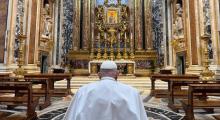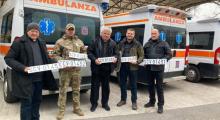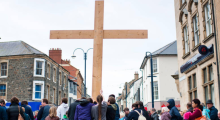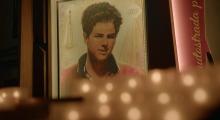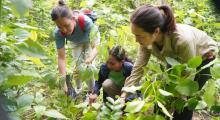Issued by the Catholic Center for Studies and Media - Jordan. Editor-in-chief Fr. Rif'at Bader - موقع أبونا abouna.org
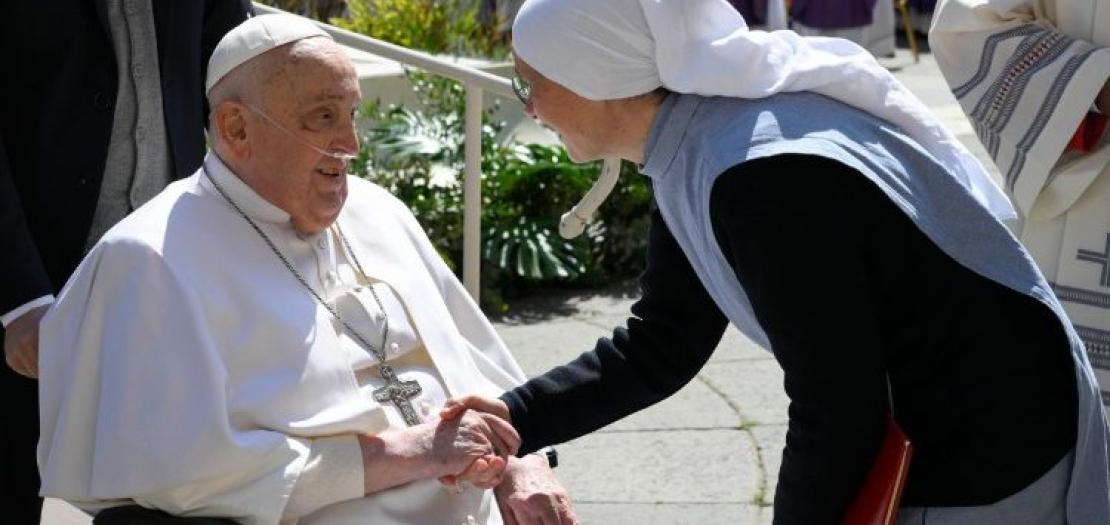
Pope Francis appears after Mass for the Jubilee of the Sick
Pope Francis was not scheduled to make any official appearances this Sunday, April 6.However, as Mass for the Jubilee of the Sick and Healthcare Workers was coming to an end, the Pope made a surprise visit to St Peter’s Square.
Passing through the congregation, the Pope reached the altar, where Mass had been celebrated by Archbishop Rino Fisichella, Pro-Prefect of the Dicastery for Evangelization.
After the final blessing, Pope Francis addressed the gathered pilgrims with a few simple words: “Have a good Sunday. Thank you all!”
Immediately afterwards, he returned to his Casa Santa Marta residence.
The Pope was wearing nasal cannulas to facilitate his breathing, as he was when he left the Gemelli Hospital on Sunday March 23.
Pilgrims expressed their enthusiasm and joy with applause and many shouts of “Viva il Papa” (“Long live the Pope”).
Before greeting and thanking the faithful in St. Peter's Square, the Holy Father “received the sacrament of reconciliation in St. Peter's Basilica, recollected himself in prayer and passed through the Holy Door”, according to the Holy See Press Office.
This means that Pope had taken the various steps required to obtain a plenary indulgence, in union with the pilgrims who had come to the Vatican for the Jubilee of the Sick and Healthcare Workers this weekend.
On Friday April 4, the Holy See Press Office reported that Pope Francis' state of health was improving slightly, and that the Holy Father was in good spirits.
Pope: 'The sickbed can become a holy place'
In his homily for the Jubilee of the Sick and Healthcare Workers, taking place on the 5th and 6th of April, Pope Francis drew inspiration from the prophet Isaiah.
In his sermon, which was read aloud by Archbishop Rino Fisichella, Pope Francis invited the faithful to contemplate the situation of the Israelites in exile: “it seemed that all was lost”, the Pope said. However, he continued, it was precisely in their moment of trial that a new nation was bring born.
Pope Francis compared this experience to the woman in the day's Gospel reading, who had been condemned and ostracized for her sins. Her accusers, ready to cast the first stone, were halted by the quiet authority of Jesus who told her “Go your way. You are free. You are saved”.
In comparing the stories, Pope Francis says that God does not wait for our lives to be perfect before he intervenes in them. Rather, said the Pope, “He enters into our wounds. He knocks at our door, not despite our suffering, but because of it”.
Turning then to those who are ill and to all those who assist them, the Pope acknowledged the deep suffering that illnesses can bring. “It can make us feel like the people in exile… or like the woman in the Gospel,” he said. But, he continued, it can also be a place of encounter, a “school” in which we learn to love and be loved with humility and grace.
Then, Pope Francis reflected on his own illness, and consequent dependence on others, describing it not as a burden but as a lesson in trust, gratitude, and hope. “Let us not push back”, he said, adding: “Let us allow ourselves to be loved”.
Pope Francis then turned to the healthcare professionals, thanking them for their work and encouraging them to receive every patient as an opportunity to renew their sense of humanity. “The sickbed can become a holy place,” he said, “where charity burns away indifference and gratitude nourishes hope.”
Bringing his address to a close, Pope Francis recalled the words of his predecessor Pope Benedict XVI, who reminded the Church that “the true measure of humanity is determined in relation to suffering”. A society that turns its back on the weak, he warned, becomes cruel and inhuman.
Finally, Pope Francis urged all those present to resist the temptation to marginalize and forget those who are elderly, ill, or weighed down by the hardships of life. “Let us not banish suffering from our surroundings,” he said. “Let us not exclude those who are frail.” Instead, we must allow God’s love - poured into our hearts - to transform even suffering into a space of communion and growth.


